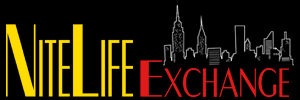
By Marilyn Lester***It’s always a treat when West Coast-er Amanda McBroom comes East, and this particular appearance at Birdland was no exception. With her musical director and songwriting partner Michele Brourman, the pair performed in front of a sold-out house filled with fans and plenty of cabaret ro yalty: Marilyn Maye, Lee Roy Reams, Karen Akers, Lorna Dallas and Billy Stritch, to name a few. It’s no wonder the show was entitled Such Good Friends.
yalty: Marilyn Maye, Lee Roy Reams, Karen Akers, Lorna Dallas and Billy Stritch, to name a few. It’s no wonder the show was entitled Such Good Friends.
McBroom has been writing songs since her teens, a decades-long vocation in which she’s revealed herself in writing and performing as a thinker-philosopher, poet, wit and accomplished actor. Along the way she has picked up a lot of good friends and colleagues whose material she loves and whose stories she shared in this outing—Ann Hampton Callaway, Julie Gold, Marilyn Bergman, Dorothy Fields and more. Opener, “Take A Bite” (Michele Brourman, Karen Gottlieb) set the stage for McBroom’s charm and easy demeanor in patter and vocals, which which left no doubts about the range of her talent. She hit another homer in her next tune, the exceedingly witty “Find My Phone.”
“Find My Phone” is a product of the digital age. It’s pretty hilarious, but to think on it, especially for old-timers, it’s a reminder that in the last few decades of the internet and social media and beyond, the music business has changed in many ways. Not the least of these is a shrinking market for nuanced, thoughtful and melodic storytelling—all the more reason to laud and appreciate the likes of those who still write them, such as Judy Gold (in the audience), whom McBroom announced as a member of the “Bette Midler Changed My Life Club” (Gold’s tune was the 1990 hit, “From a Distance”). Gold’s lovely ballad, “Southbound Train,” was sung accompanied by beautiful bowing from bassist Ritt Henn, whose presence added textures to the piano-vocal combination of Brourman and McBroom.
 For those who might scratch their heads at the concept of a phone that doesn’t have an “i” in the name, a poignant “Information Please” offered a heart-piercing lyric inspired by a 1950s true story in the Readers Digest, sent to McBroom by friend and fellow songwriter, Ann Hampton Callaway. And in the wonderful way of songs that tell meaningful stories, there was pathos as well as joy and hope. Similarly, McBroom offered “Girl Writing a Letter” ( Lori Lieberman), based on William Carpenter’s poem of the same title, in turn inspired by the 2015 theft of Vermeer’s painting, The Concert, still unrecovered. “Wheels,” an observation of life’s journey from childhood to old age (written soley by McBroom) proved yet again why McBroom is a titan of brilliant song interpretation. Like the anti-war “For Nothing,” written on the anniversary of the atomic bombing of Hiroshima, all of these songs speak to a depth of shared humanity.
For those who might scratch their heads at the concept of a phone that doesn’t have an “i” in the name, a poignant “Information Please” offered a heart-piercing lyric inspired by a 1950s true story in the Readers Digest, sent to McBroom by friend and fellow songwriter, Ann Hampton Callaway. And in the wonderful way of songs that tell meaningful stories, there was pathos as well as joy and hope. Similarly, McBroom offered “Girl Writing a Letter” ( Lori Lieberman), based on William Carpenter’s poem of the same title, in turn inspired by the 2015 theft of Vermeer’s painting, The Concert, still unrecovered. “Wheels,” an observation of life’s journey from childhood to old age (written soley by McBroom) proved yet again why McBroom is a titan of brilliant song interpretation. Like the anti-war “For Nothing,” written on the anniversary of the atomic bombing of Hiroshima, all of these songs speak to a depth of shared humanity.
Among McBroom’s friends present was Sally Mayes, making a guest appearance, singing a tune from another wit, the late Carol Hall.  “It’s Only a Broken Heart” was, in great part, a litany of things “it’s” not—root canal, for instance. Brourman took her own solo, on a tune written with lyricist Mark Winkler: “In Love In New York,” a love letter to the City. Absent friends, Marilyn Bergman and Dorothy Fields came alive respectively, in “Nice and Easy” (Lew Spence, music, with Alan Bergman) and “The Way You Look Tonight” (Jerome Kern, music).
“It’s Only a Broken Heart” was, in great part, a litany of things “it’s” not—root canal, for instance. Brourman took her own solo, on a tune written with lyricist Mark Winkler: “In Love In New York,” a love letter to the City. Absent friends, Marilyn Bergman and Dorothy Fields came alive respectively, in “Nice and Easy” (Lew Spence, music, with Alan Bergman) and “The Way You Look Tonight” (Jerome Kern, music).
McBroom’s most famous work (words and music), The Rose,” became a mega-hit when recorded by Bette Midler in 1979; and so the penultimate “The Rose” can be considered a marker for all of McBroom’s talent and greatness that followed. Sally Mayes retuned to the stage and joined in the encore, “Just In Case” (music by mentor, Portia Nelson) and “Such Good Friends” (music by Brourman). Is it any wonder why an ecstatic audience joined in before a rousing standing “O”?
Photos by Maryann Lopinto








